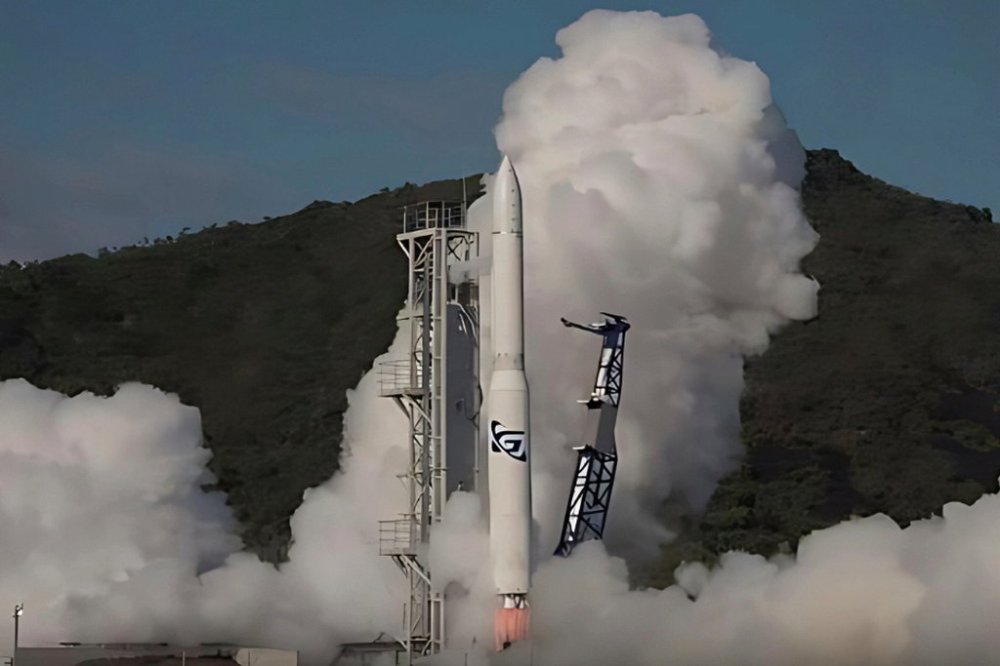First Australian-made rocket crashes after 14 seconds of flight in a failed attempt to reach orbit
Advertisement
Read this article for free:
or
Already have an account? Log in here »
To continue reading, please subscribe:
Monthly Digital Subscription
$0 for the first 4 weeks*
- Enjoy unlimited reading on winnipegfreepress.com
- Read the E-Edition, our digital replica newspaper
- Access News Break, our award-winning app
- Play interactive puzzles
*No charge for 4 weeks then price increases to the regular rate of $19.00 plus GST every four weeks. Offer available to new and qualified returning subscribers only. Cancel any time.
Monthly Digital Subscription
$4.75/week*
- Enjoy unlimited reading on winnipegfreepress.com
- Read the E-Edition, our digital replica newspaper
- Access News Break, our award-winning app
- Play interactive puzzles
*Billed as $19 plus GST every four weeks. Cancel any time.
To continue reading, please subscribe:
Add Free Press access to your Brandon Sun subscription for only an additional
$1 for the first 4 weeks*
*Your next subscription payment will increase by $1.00 and you will be charged $16.99 plus GST for four weeks. After four weeks, your payment will increase to $23.99 plus GST every four weeks.
Read unlimited articles for free today:
or
Already have an account? Log in here »
WELLINGTON, New Zealand (AP) — The first Australian -made rocket to attempt to reach orbit from the country’s soil crashed after 14 seconds of flight on Wednesday.
The rocket Eris, launched by Gilmour Space Technologies, was the first Australian-designed and manufactured orbital launch vehicle to lift off from the country and was designed to carry small satellites to orbit. It launched Wednesday morning local time in a test flight from a spaceport near the small town of Bowen in the north of Queensland state.
In videos published by Australian news outlets, the 23-meter (75-foot) rocket appeared to clear the launch tower and hovered in the air before falling out of sight. Plumes of smoke were seen rising above the site.

No injuries were reported.
The company hailed the launch as a success in a statement posted to Facebook. A spokesperson said all four hybrid-propelled engines ignited and the maiden flight included 23 seconds of engine burn time and 14 seconds of flight.
Gilmour Space Technologies had planned previous launches of the rocket, in May and earlier this month, but called off those operations because of technical issues and bad weather.
CEO Adam Gilmour said in a statement he was pleased the rocket got off the launchpad.
“Of course I would have liked more flight time but happy with this,” he wrote on LinkedIn. Gilmour said in February that it was “almost unheard of” for a private rocket company to successfully launch to orbit on its first attempt.
The firm had earlier said it would consider the launch a success if the rocket left the ground. The launch site infrastructure “remained intact,” the statement said.
Mayor Ry Collins of the local Whitsunday Regional Council said the completed launch was a “huge achievement” even though the vehicle didn’t reach orbit.
“This is an important first step towards the giant leap of a future commercial space industry right here in our region,” he wrote on Facebook.
Gilmour Space Technologies has private funders and was awarded a 5 million Australian dollar ($3.2 million) grant this month from the country’s federal government for the development of the Eris rocket. It followed the firm’s AU$52 million grant agreement with the government in 2023 to advance the development and commercialization of new space technologies in Australia.
The country has been the site of hundreds of suborbital vehicle launches but there have only been two successful launches to orbit from Australia before, according to the aerospace news platform NASASpaceFlight. The maiden Eris test flight was the first orbital launch attempt from Australia in more than 50 years.

